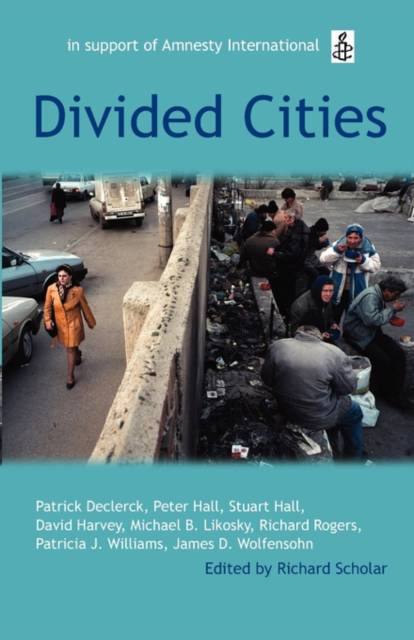
- Afhalen na 1 uur in een winkel met voorraad
- Gratis thuislevering in België vanaf € 30
- Ruim aanbod met 7 miljoen producten
- Afhalen na 1 uur in een winkel met voorraad
- Gratis thuislevering in België vanaf € 30
- Ruim aanbod met 7 miljoen producten
Zoeken
€ 72,45
+ 144 punten
Omschrijving
Cities, at their best, are cradles of diversity, opportunity, and citizenship. Why, then, do so many cities today seem scarred by divisions separating the powerful and privileged from the victims of deprivation and injustice? What is it like to live on the wrong side of the divide in Paris, London, New York, Sao Paolo, and other cities all over the world?
In this book, based on the internationally renowned Oxford Amnesty Lectures, eight leading urban thinkers argue about why divisions arise in cities and about what could and should be done to bring those divisions to an end. The book features essays by Patrick Declerck, Stuart Hall, David Harvey, Richard Rogers, Patricia Williams, and James Wolfensohn, with commentaries from Peter Hall, Michael Likosky, and others. The many contemporary issues that the book addresses include the impact of globalization and migration on the urban environment, the consequences of the 'war on terror' for those living in cities, the new development paradigm being adopted by international institutions in the developing world, the need for a genuine urban renaissance in Britain and elsewhere, and the suffering of the homeless.
These controversial and sometimes conflicting essays, linked by Richard Scholar's incisive introduction, aim to encourage and inform debate about the challenges to human rights in our increasingly urban world.
In this book, based on the internationally renowned Oxford Amnesty Lectures, eight leading urban thinkers argue about why divisions arise in cities and about what could and should be done to bring those divisions to an end. The book features essays by Patrick Declerck, Stuart Hall, David Harvey, Richard Rogers, Patricia Williams, and James Wolfensohn, with commentaries from Peter Hall, Michael Likosky, and others. The many contemporary issues that the book addresses include the impact of globalization and migration on the urban environment, the consequences of the 'war on terror' for those living in cities, the new development paradigm being adopted by international institutions in the developing world, the need for a genuine urban renaissance in Britain and elsewhere, and the suffering of the homeless.
These controversial and sometimes conflicting essays, linked by Richard Scholar's incisive introduction, aim to encourage and inform debate about the challenges to human rights in our increasingly urban world.
Specificaties
Betrokkenen
- Uitgeverij:
Inhoud
- Aantal bladzijden:
- 240
- Taal:
- Engels
- Reeks:
Eigenschappen
- Productcode (EAN):
- 9780192807083
- Verschijningsdatum:
- 2/03/2006
- Uitvoering:
- Paperback
- Formaat:
- Trade paperback (VS)
- Afmetingen:
- 133 mm x 196 mm
- Gewicht:
- 195 g

Alleen bij Standaard Boekhandel
+ 144 punten op je klantenkaart van Standaard Boekhandel
Beoordelingen
We publiceren alleen reviews die voldoen aan de voorwaarden voor reviews. Bekijk onze voorwaarden voor reviews.










